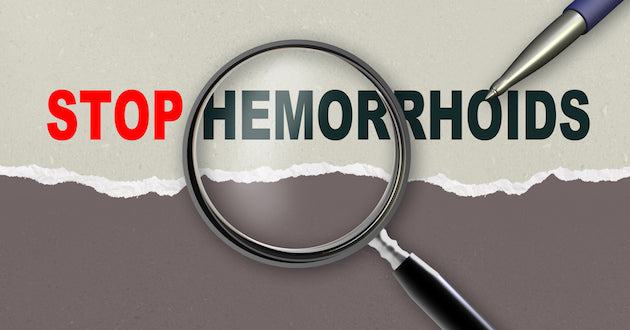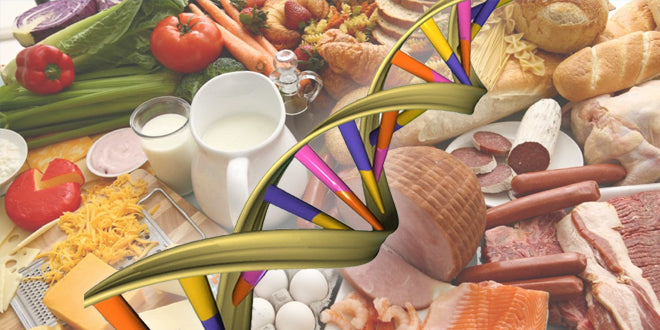When someone says, “Wow, I wish I could eat like you,” that individual usually wishes that he or she had the genetic makeup to be able to eat fatty foods without negative health effects. However, multiple studies examining the interaction between genetics and nutrition show that diet and lifestyle can overwhelmingly affect one’s genetic make-up.
Some 14 years ago, the first human genome was structured in great detail for over $3 billion. Today, with improved techniques that allow massive amounts of parallel processing, scientists can produce the same detailed gene structure in 24 hours for only $1,500. The increases in genetic technology have broadened our understanding of genetic deficiencies and how they can be addressed—specifically, how the proper diet can normalize genetic weaknesses.
In high school and college biology classes, we learned about the linear relationship between DNA, RNA, and proteins: DNA turns into RNA which turns into protein. However, as our understanding has grown, we have come to realize that the flow of information between DNA, RNA, and proteins is dynamic rather than static. Genetic code acts like water and conforms to its container—in this sense, the human body. In terms of genetic code, the food and chemicals that we put into our body affect our exposure to specific cells and alter our gene expression.
How Diet Affects Genetic Diseases
First, scientists cannot identify a diseased gene and replace it with a healthy gene to cure one’s ailments. Instead, scientists can use a proper diet, healthy lifestyle choices, and a nutrient-rich supplement to correctly address and solve many inherent genetic weaknesses.
For example, Dr. Dean Ornish, MD, led a study to examine how lifestyle changes affect early stage prostate cancer. In the study, 30 men changed their lifestyles and diets for three months by eating whole foods, following a low-fat vegan diet, getting daily exercise, managing stress, attending group support sessions, and taking nutritional supplements with extra plant protein, vitamins E and C, selenium, and fish oil. After the three-month period, analysis of the subjects’ prostate tissues showed 48 genes’ copies increased and 453 genes’ copies were decreased. This study proves that changes in diet and lifestyle make a dramatic difference in how genetic systems operate.
While lifestyle changes can positively affect inherited genetic deficiencies like prostate cancer, the proper diet can normalize genetic weaknesses that are related to poor lifestyle choices. In a Norwegian study that involved only smokers, one group maintained its usual diet, one group added three kiwifruits to its usual diet, and one group ate a diet much higher in antioxidants (berries, berry juice, vociferous vegetables, nuts, and seeds). After the subjects submitted blood for genetic analysis, the results showed that the group with high antioxidants increased expression of genes involved in cellular defense.
Genetics and Obesity
In contrast to the healthy diets and lifestyles that helped to regulate gene weaknesses, fat-based diets have a negative impact on vital genetic expression. When one’s diet contains high-fat intake, genes related to slow fatty acid metabolism are increased, and genes responsible for redox and stress response were decreased.
As mentioned above, genetics and obesity are certainly related. However, while obesity is highly inheritable, diet and lifestyle changes can be sufficient to address and adjust the genetic expressions responsible for obesity. Susceptibility to obesity is polygenic, meaning that many genes are affected.
According to an article published by the Harvard T. H. Chan School of Public Health titled Genes are not Destiny, the recent rise in obesity is explained through changes in “physical, social, political, and economic surroundings that influence how much we eat and how active we are.” The article states: “it seems that eating a healthy diet and getting enough exercise may counteract some of the gene-related obesity risk.” With the shift from family dinners to to-go dinners because of fast-paced lives, people often consume a high-fat, nutrient-deficient diet that fuels their often obese-prone genetic make-up.
In terms of genetic analysis, scientists are furthering their abilities to discover the specific genetic systems that lead to obesity. But the fact remains that the combination of a healthy diet, daily exercise, and the supplementation of nutrients leads to the regulation of genes that contribute to obesity.
The Role of Vegetables in Genetic Normalization
As virtually every health professional would recommend, a diet high in nutrient-rich fruits and vegetables is incredibly beneficial. And cellular analysis has specifically identified vegetables as an effective means of genetic normalization.
In a study of subjects with esophageal cancer, researchers identified 2,261 genes affected by the treatment of carcinogens. After consumption of a natural compound present in vegetables, researchers identified that 1,323 genes of the original 2,261 were normalized. Specific genes that were normalized include genes responsible for inflammation, cell differentiation, and cell death. Additionally, and potentially more importantly, the normalized genes led to esophageal tissue that was indistinguishable from non-carcinogen containing tissue.
Effect of Pharmaceutical Drugs on Genetics
The rise of pharmaceutical drugs as a means to cure genetic diseases has had mixed results. While pharmaceutical drugs cause widespread changes in genetic expression, their effects are not always as intended. Pharmaceutical drugs effectively explode a synthetic bomb within genetic systems that release toxins affecting gene expression. Synthetic drug compounds mask genetic problems instead of normalizing cellular biology, which in turn causes many other problems.
Takeaways
The world of genetic research is one that continues to expand. The ability to isolate genetic systems that are positively affected by proper nutrition and lifestyle choices has begun to change the way that diseased patients are treated. As always, a diet full of fruits, vegetables, and nutrient-rich supplements positively affects one’s health. And, by examining their effects on the human genome, scientists are discovering ways to transform genetic deficiencies into genetic proficiencies.






